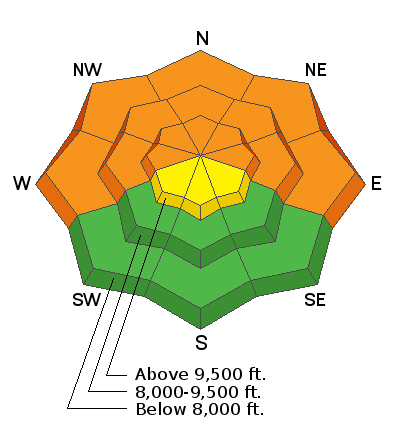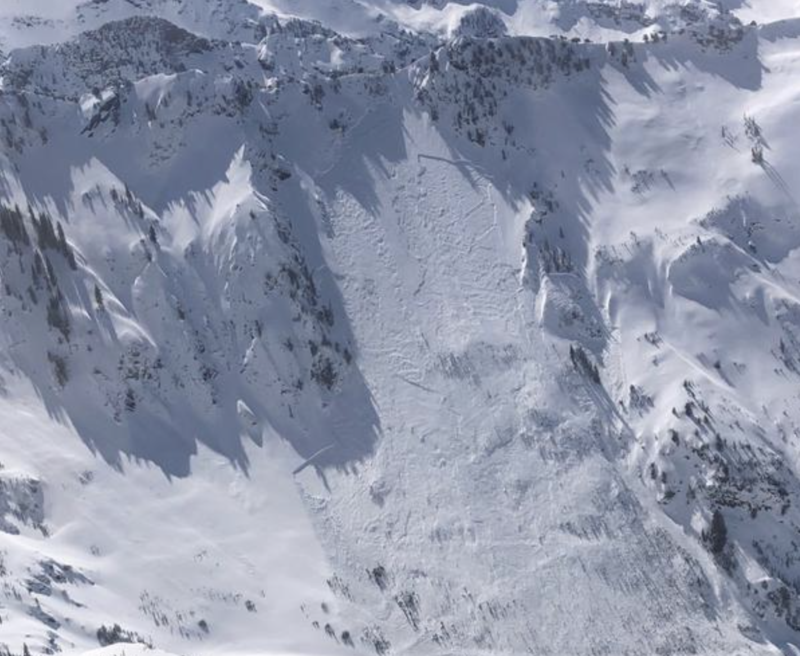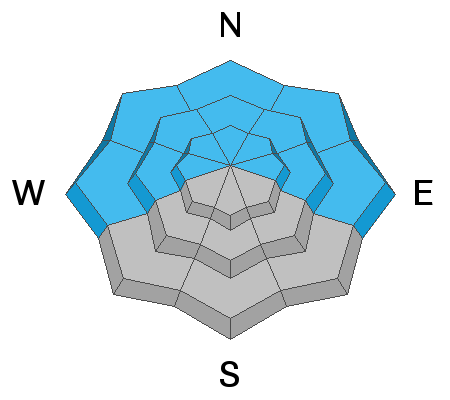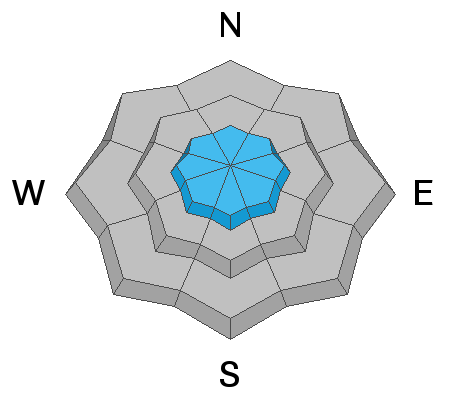Many large and dangerous human-triggered avalanches have occurred over the
past several days, failing on a layer of faceted snow (a
persistent weak layer) that formed during the January/February drought. Avalanches failing on this weak layer are 2-4' deep and well over 100' wide and can easily catch, carry, bury, and kill a human. These avalanches are not to be messed with.
If yesterday's avalanche in Mineral Fork isn't enough to convince you to back off, I am unsure what will? I know that I will continue to avoid being on or below steep avalanche terrain (slopes steeper than 30°) on the north side of the compass for the time being. I have zero confidence in the snowpack right now. There are no secrets here; it's plain dangerous. Avalanche professionals and people with years of experience are simply avoiding this type of terrain.
Persistent weak layers can be triggered remotely, from a distance, or from below. Imagine walking up to a giant log pile and pulling out the bottom log, and having the entire log pile come crashing down on top of you.
Yesterday south-facing slopes were the ticket, and unfortunately, today, they will be sun-crusted and less appealing. This will force us into the northerly facing terrain where the snow is soft and therefore luring us into the avalanche dragon's den. Don't be fooled when there are no obvious clues to an unstable snowpack, i.e., cracking & collapsing. Tracks are not an indicator of stability.











